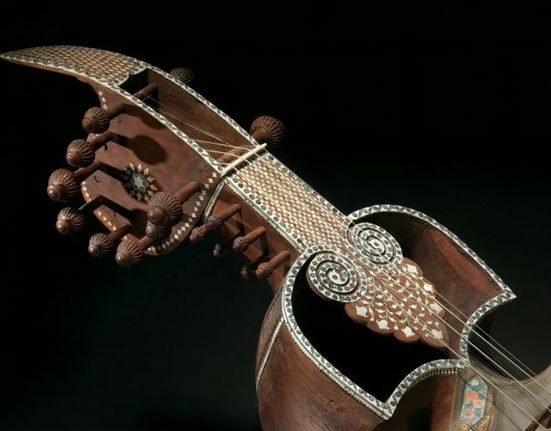The extremely viral Tamil song is much more than it appears. There are many pretty elements and messages that the song conveys. Read further to know them.
Saakshi Priyadarshini | BeatCurry Team
Songs were made and are propagated to convey meaning and thoughts in ways that transcend the boundaries of visuals, scenes, situations, and language too. That’s the beauty of songs. One doesn’t need to focus a lot on the lyrics. The song conveys the emotions anyway. But as we all know, there are exceptions to every rule, and ‘Enjoy Enjaami’ is an exceptional exception to that concept.
When we talk about ‘Enjoy Enjaami’, we often see the tip of the iceberg only. To most of us, who are unaware of the Tamil language, it might just seem like a few tribal people singing and dancing weirdly. Still, it would all appear very catchy with a beautiful woman of colour, in vibrant costumes surrounded by more marginalised looking people, giving cinematic shots in a rather greatly colour coordinated natural but scarce village setting. Some of us might even think it is some African tribal performance by the looks of it but it is all actually so much more!
ABOUT ENJOY ENJAAMI
So before we jump into the powerful lyrics that are deeper than the pacific ocean, let’s know a bit more about the equally entertaining and popular song. The foot tapping song is sung as a single debut by playback singer Dhee, also featuring Tamil rapper Arivu, who has also rendered the lyrics to the song. The song is a Santosh Narayanan production and a well-deserved release under the label of Maajja, an independent music record platform launched by the legendary composer A.R. Rahman.
Enjoy Enjaami was released on 7th March 2021 and soon started presenting record-breaking stats of viewership on Youtube. By May 2021, the song had already garnered a whopping 3.7 million likes and almost 195 million views on the video streaming platform. Belonging to the genre of the Tamil folk form Oppari, the song smashed all the definitions of success and language. It had crossed 2 million Spotify plays within 2 weeks of its release. It also became the first Tamil song (non-film) to amass 100 million-plus views.
WHAT DOES ENJOY ENJAAMI DEPICT?
Soon after its release, Enjoy Enjaami was bombarded with praise from across the world for the pathbreaking song and the powerful message it carries and delivers so subtly about coexistence and generational oppression.
Arivu, the lyricist of Enjoy Enjaami, enlightened us about what possibly made people connected to the song and said, “I talk about people’s issues through the song. Maybe because I talk about the origins of civilization, before caste and other discriminatory practices came into existence, everyone could connect to it. But I am very happy with the song’s wide reception. My ultimate aim is to bring people together and fight against inequality.”
Primarily, the song is inspired by the life events of Arivu’s grandmother Valliammal, who was taken as bonded labour to Ceylon by the colonialists, to help farm commercial crops over there. Nothing much has seemed to change in their situations and the disparity became the angry driving force behind the song.
Hence it aims to pay tribute to the oppressed ancestors who have remained landless throughout the years but doesn’t aim to achieve it by displaying supremacy, pride, or glamour. As the lyrics go “Naan anju maram valarthe, Azhagana thottam vachchen, Thottam Sezhithaalum en thonda nanaiyalaye” it translates to “I planted five trees and nurtured a beautiful garden. Though my garden is flourishing, my throat remains dry.” The line essentially highlights the peasants’ plight.
In the song, one can extensively see people alongside nature and not consuming it. Enjoy Enjaami propagates the feeling of a connection with our mother Earth. Singer Dhee confirms the belief when she says, “The song is a celebration of life, earth, and ancestors.” The lyrics that translate to The Lakes And Ponds Belong To Dogs, Foxes And Cats Too, assert the message of coexistence and the nature that nurtures civilization. The song worships the roots of creation and existence.

A still featuring singer Dhee and Rapper Aruvi
READING BETWEEN THE LINES
There are several symbols, metaphors, and small nuances that can get overlooked in the first view of a layman. So here we are going to talk about those certain things that are pointing towards certain angles completely to the disposal of our understanding. The music video directed by the extremely talented Amith Krishnan in the native village of Arivu near Tiruvannamalai district maintains the authenticity of the message conveyed by some beautiful visuals.
The genre of the song: Arivu’s songs are mostly loaded with political intent and have often stirred controversy, but they are so powerful! The rebellion is quite clear in the lyrics. Yet, he is not a rebel without a cause. The upbeat appearing song falls in the genre of Oppari, a Tamil folk form of music that is usually performed by backward and oppressed castes during funerals! It’s so hard to imagine a funeral song, that too performed by the marginalised sections that tops the charts and makes a statement that resonates throughout the masses. Rap has stemmed from the repressed voices and thus Oppari is the original Hip-hop of India according to Arivu.
The instrument Parai: The opening of the song alone is very powerful as we listen to the people play a flat drum called Parai, again an instrument played by the dalits during funerals. Now the use of such an instrument breaks so many stereotypes and blurs the line between happiness and lament, which continues throughout the song while popularising something that is considered malignant.
Kolava: Alongside the hysterical drum beats, one can hear a high-pitched ululation that is a sound that women make during happy or sad occasions. It seems horrific and anxious at first, but more than that, it signals anger here against the long-continued oppression.
The title: Enjoy Enjaami translates to enjoy, my dear. Enjaami is itself a word that screams love and rebellion simultaneously. Enjaami actually is a loving exclamation used by elders for the children but it was also used to refer to the masters. Thus, the title effectively kills two birds with one stone.
The expression and movements: The otherwise celebratory-looking dance moves that have chest-beating too are channelising the aggression while presenting a unified front. While the beautiful smiling faces of the workers are a symbol of rebellion as they sing, dance, and enjoy the song. It depicts that they are still alive and dignified, contrary to popular belief.
The visual metaphors: Dhee touches the soil and clenches it in her hand thus signifying that she has as much right to own the soil (land) as anyone who owns the land. Later on, the same hand covers the hand of a plantation worker, thus symbolising solidarity. Kudos to the direction here as in the end, they show Aruvi’s grandmother sitting on a throne made of the same material that is being used in their basket weaving occupation, thus paying tribute and respect to the workers.
CONSENSUS
From an ancient time, the funeral song has been looked down upon and shunned by society. The same is ruling the hearts of the people who are making reaction videos, reels and are dancing with the Dalits. Breaking stereotypes and redefining values is what art and music do, the song Enjoy Enjaami is just epitomising the notion prolifically.
If you’d like to know about the unique and versatile forms and flavours of music,
Log on to www.beatcurry.com, subscribe and never miss another update from us.







